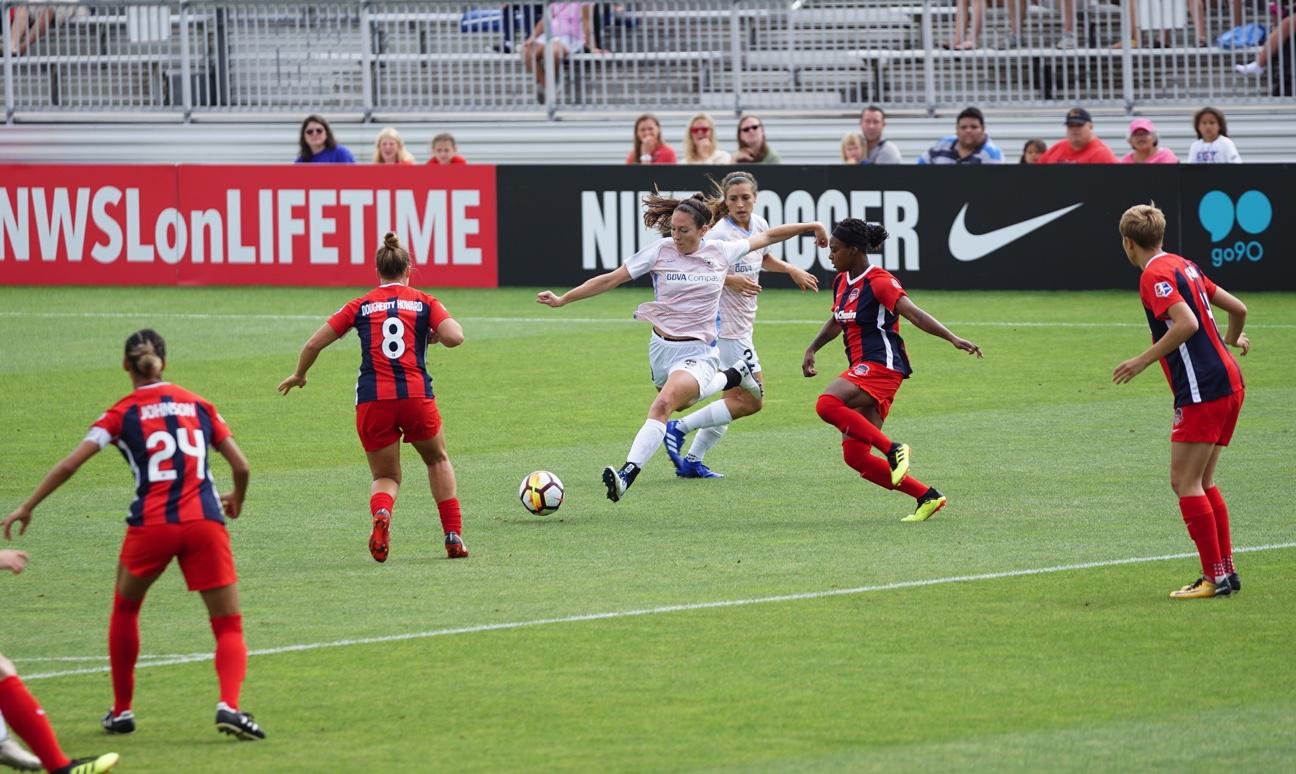
Ahead of the golden anniversary of Title IX, The Women’s Sports Foundation (WSF) released a report with findings about the state of women’s athletics in the United States, including calls to action. The report is titled “Chasing Equity: The Triumphs, Challenges, and Opportunities in Sports for Girls and Women.”
The data show that female sports are disadvantaged from elementary school through college. Even Title IX, established to protect activities like women’s sports, is not providing the necessary support to female athletics.
“Chasing Equity” finds that 83 percent of college coaches have never received formal Title IX training, and 31 percent of female coaches believe they would risk theirs job by speaking up about Title IX and gender equality.
Continuing to allow women’s and girls’ sports to play second fiddle to male athletics has negative impacts beyond gender.
Economic benefits of girls’ sports
A breadth of research shows that girls and women who participate in sports are healthier, happier, more productive and more empowered members of society. Investing in gender equity in American sports is investing in the prosperity of American society.
The WSF also makes the argument that participating in sports prepares young individuals for the workforce. Athletics teach children and young adults the values of teamwork, persistence, loyalty, confidence and much more, it says.
Female empowerment also pays off on an even larger scale. The PwC Women in Work Index 2019 identifies that increasing female employment in OECD countries to match that of Sweden, a jump of 12 percent, could boost overall GDP by $6 trillion. Closing the gender gap could add $2 trillion.
The gender gap has been found to cost OECD countries an average income loss of 15 percent. Supporting female sports can help bridge that gap.
Women's sports by the numbers
Data from 500 research studies and reports, as well as a survey of over 2,000 female sports leaders from across the country, reveal that girls’ sports participation is increasing, but barriers remain. Girls are still twice as likely to drop out of sports than boys.
And while female sports participation is on the rise, female coaching has seen a slump. In 1971, 90 percent of women’s college teams had female head coaches. Today, that number has dropped to 43 percent. Women currently only coach 23 percent of all college teams.
That’s not to mention the unequal pay athletes endure at the professional level.
Fair media coverage is one way to promote the value of female sports, the WSF says. Most women’s sports coverage focuses on major international events like the Olympics and soccer’s FIFA World Cup. Altogether, women’s sports have been allocated little more than 3 percent of sports media coverage in the United States.
Taking these results into account, the WSF has rounded up calls to action related to designing girls’ sports, funding programs, utilizing Title IX, promoting women leaders and improving female sports coverage. The recommendations are detailed and relevant to anyone who coaches, supervises, supports, funds or reports on female sports.
The Equity Project
The WSF itself is taking practical steps toward narrowing the gender divide in athletics with The Equity Project, launched in January. The project aims to bring together stakeholders across sports-related industries and sectors to identify measurable goals and outcomes for the organization’s calls to action.
“As the ally, advocate and consistent rallying voice in women’s sports for over 45 years, WSF has made a tremendous difference in helping girls and women reap the powerful, life-long benefits of sports participation — and the potential is there to accelerate the change even further," the Foundation's CEO, Deborah Antoine, said of the project in a press statement.
“We are excited to usher in the new decade with the launch of The Equity Project, a natural outgrowth of our Foundation’s strategy which is rooted in impacting participation, policy and practice in sustainable, measurable ways. Some may say this initiative is a very ambitious undertaking — we agree. Our Foundation is built on taking courageous action to change society for the better. We are resolute in achieving our vision that one day girls and women will no longer be chasing equity, they will be living it fully.”
Image credit: Jeffrey F Lin/Unsplash

Roya Sabri is a writer and graphic designer based in Illinois. She writes about the circular economy, advancements in CSR, the environment and equity. As a freelancer, she has worked on communications for nonprofits and multinational organizations. Find her on LinkedIn.














